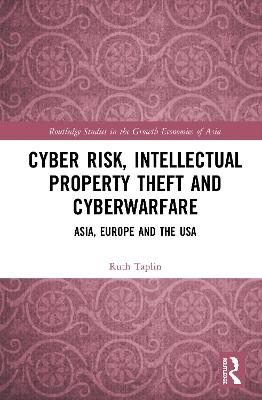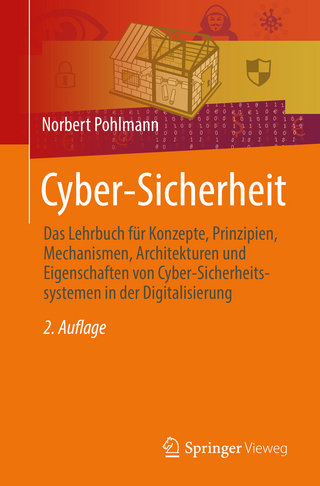
Cyber Risk, Intellectual Property Theft and Cyberwarfare
Asia, Europe and the USA
Seiten
2020
Routledge (Verlag)
978-1-138-32058-1 (ISBN)
Routledge (Verlag)
978-1-138-32058-1 (ISBN)
The desire to steal the Intellectual Property (IP) of others be they creative individuals or the fruits of company teams working in patent pools to create new innovations remains the same.
The desire to steal the intellectual property (IP) of others, be they creative individuals or company teams working in patent pools to create new innovations, remains the same. Political methods have become more sophisticated in terms of devaluing the output of creative humans by creating open- source access, which can be taken freely by all and sundry. What has changed is the new cyber- based technology that allows increased theft of IP. Likewise, warfare for geo- political imperatives is not new but sophisticated cyber- based methods that can actually carry out infrastructural damage through cyberspace are new and are accordingly termed cyberwarfare. How cyber strategies are used in IP theft and cyberwarfare in relation to new complex digital technology such as the Internet of Things (IoT) is explored in relation to particular essential sectors in the economy: marine, smart energy power grids and insurance. Country- specifi c studies based on either being the recipient or perpetrator (or both) of cyberattacks provide analysis in relation to Japan, China and North Korea, Russia, Europe (the UK in particular), Iran and the USA.
The desire to steal the intellectual property (IP) of others, be they creative individuals or company teams working in patent pools to create new innovations, remains the same. Political methods have become more sophisticated in terms of devaluing the output of creative humans by creating open- source access, which can be taken freely by all and sundry. What has changed is the new cyber- based technology that allows increased theft of IP. Likewise, warfare for geo- political imperatives is not new but sophisticated cyber- based methods that can actually carry out infrastructural damage through cyberspace are new and are accordingly termed cyberwarfare. How cyber strategies are used in IP theft and cyberwarfare in relation to new complex digital technology such as the Internet of Things (IoT) is explored in relation to particular essential sectors in the economy: marine, smart energy power grids and insurance. Country- specifi c studies based on either being the recipient or perpetrator (or both) of cyberattacks provide analysis in relation to Japan, China and North Korea, Russia, Europe (the UK in particular), Iran and the USA.
Ruth Taplin (PhD LSE, Graduate Diploma in Law) is Editor of the Interdisciplinary Journal of Economics and Business Law (IJEBL), Author/Editor of 23 books and over 200 articles, Featured Author Routledge and Director of the Centre for Japanese and East Asian Studies.
1. Introduction 2. IP Theft and Cyberwarfare 3. Case Study- Japan 4. Case Study-Russia 5. Case Study- China 6. Case Study- the United States 7. Smart Power Grids 8. Marine Sector 9. Insurance Sector 10. Conclusion
| Erscheinungsdatum | 16.11.2020 |
|---|---|
| Reihe/Serie | Routledge Studies in the Growth Economies of Asia |
| Zusatzinfo | 3 Tables, black and white |
| Verlagsort | London |
| Sprache | englisch |
| Maße | 156 x 234 mm |
| Gewicht | 453 g |
| Themenwelt | Informatik ► Netzwerke ► Sicherheit / Firewall |
| Sozialwissenschaften ► Politik / Verwaltung ► Politische Systeme | |
| Sozialwissenschaften ► Politik / Verwaltung ► Staat / Verwaltung | |
| Sozialwissenschaften ► Soziologie ► Spezielle Soziologien | |
| ISBN-10 | 1-138-32058-7 / 1138320587 |
| ISBN-13 | 978-1-138-32058-1 / 9781138320581 |
| Zustand | Neuware |
| Haben Sie eine Frage zum Produkt? |
Mehr entdecken
aus dem Bereich
aus dem Bereich
Das Lehrbuch für Konzepte, Prinzipien, Mechanismen, Architekturen und …
Buch | Softcover (2022)
Springer Vieweg (Verlag)
34,99 €
Management der Informationssicherheit und Vorbereitung auf die …
Buch (2024)
Carl Hanser (Verlag)
69,99 €


